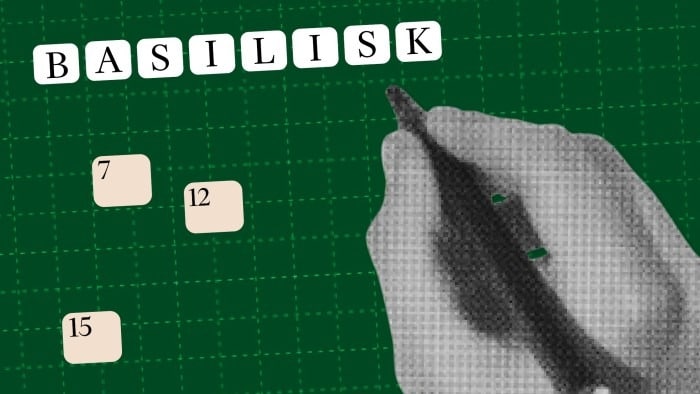In the latest in a series, a setter reveals his route from algorithms to cryptic puzzles
Your setter/compiler handle/pseudonym/alter ego Basilisk
Why? From Serpent, my setter name in the Independent (Serpent being a cryptographic algorithm, which was something connected with my day job)
Real name Jason Crampton
Where are you? Egham, Surrey
Years compiling 10
And measured in number of crosswords, roughly About 200 standard cryptics and 60 barred, thematic puzzles.
Full time or part-time with another job? I was, until 2020, an academic at Royal Holloway, University of London, where I was a professor of information security (hence the interest in cryptographic algorithms).
Did your school mention crossword compiling in career discussions? Ha, no! I studied mathematics at university, then taught for several years. I ended up doing a masters and PhD in theoretical computer science.
Who/what got you into cryptic crosswords? I started solving cryptic crosswords at university. I used to study the answers the next day in an attempt to understand how cryptic clues worked. By the end of university, I was regularly completing them.
Interactive crosswords on the FT app
Subscribers can now solve the FT’s Daily Cryptic, Polymath and FT Weekend crosswords on the iOS and Android apps
Walk us through your compiling strategy I work on a particular feature for the grid, such as a hidden message, or book title, or author. I try to avoid plurals, inflected forms and unfamiliar words as much as possible. Then I start writing clues. Once I’ve got a first draft of the clues, I import the grid. Then I polish the clues and send off to test-solvers.
So you think you’re hard My puzzles do not generally contain obscure entries or wordplay elements. However, quite a lot of solvers do find my puzzles difficult, I think because I spend a lot of time making the surfaces of my clues (the way the clue reads) as smooth and natural as possible. This has the effect of making it difficult to determine where the definition is and what the wordplay elements might be.
The clue you wished you’d written
Inflammation primarily found in maternal breasts (8)
(Written by Sarah Hayes — Rosa Klebb in the FT)
I say nothing (3)
(Written by John Henderson — IO in the FT)
And the clue you’re glad you did
Without oxygen we go blue (9)
What’s the topic of conversation when you come across other compilers? Good puzzles and clues (and bad ones). How we go about writing puzzles. But lots of other stuff – often music, books, films, etc.
Any advice for solvers? Read the crossword blogs – they are an excellent way of learning how cryptic clues work. I wished they had existed in the 1980s when I was learning.
And for wannabe compilers? Practise. Get your puzzles test-solved. Do not be too precious about your clues. If a clue almost works, then it doesn’t actually work and you should start again.
Your favourite/least favourite other word game I’m still a big fan of Scrabble, although I don’t play it much these days.
SOLUTIONS –
MASTITIS
EGO
WOEBEGONE
Source: Financial Times



